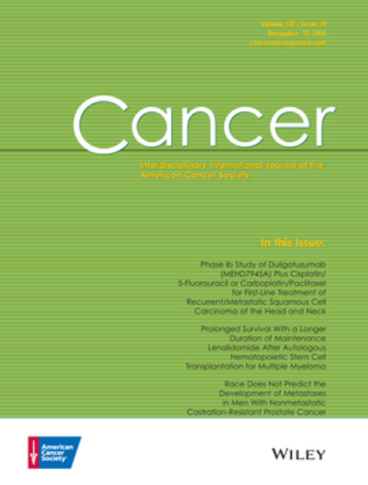Accounting for Medicaid expansion and regional policy and programs to advance equity in cancer prevention in the United States
Abstract
Background
Many studies compare state-level outcomes to estimate changes attributable to Medicaid expansion. However, it is imperative to conduct more granular, demographic-level analyses to inform current efforts on cancer prevention among low-income adults. Therefore, the authors compared the volume of patients with cancer and disease stage at diagnosis in Ohio, which expanded its Medicaid coverage in 2014, with those in Georgia, a nonexpansion state, by cancer site and health insurance status.
Methods
The authors used state cancer registries from 2010 to 2017 to identify adults younger than 64 years who had incident female breast cancer, cervical cancer, or colorectal cancer. Multivariable Poisson regression was conducted by cancer type, health insurance, and state to examine the risk of late-stage disease, adjusting for individual-level and area-level covariates. A difference-in-differences framework was then used to estimate the differences in risks of late-stage diagnosis in Ohio versus Georgia.
Results
In Ohio, the largest increase in all three cancer types was observed in the Medicaid group after Medicaid expansion. In addition, significantly reduced risks of late-stage disease were observed among patients with breast cancer on Medicaid in Ohio by approximately 7% and among patients with colorectal cancer on Medicaid in Ohio and Georgia after expansion by approximately 6%. Notably, the authors observed significantly reduced risks of late-stage diagnosis among all patients with colorectal cancer in Georgia after expansion.
Conclusions
More early stage cancers in the Medicaid-insured and/or uninsured groups after expansion suggest that the reduced cancer burden in these vulnerable population subgroups may be attributed to Medicaid expansion. Heterogeneous risks of late-stage disease by cancer type highlight the need for comprehensive evaluation frameworks, including local cancer prevention efforts and federal health policy reforms.
Plain Language Summary
-
This study looked at how Medicaid expansion affected cancer diagnosis and treatment in two states, Ohio and Georgia.
-
The researchers found that, after Ohio expanded their Medicaid program, there were more patients with cancer among low-income adults on Medicaid.
-
The study also found that, among people on Medicaid, there were lower rates of advanced cancer at the time of diagnosis for breast cancer and colon cancer in Ohio and for colon cancer in Georgia.
-
These findings suggest that Medicaid expansion may be effective in reducing the cancer burden among low-income adults.

 求助内容:
求助内容: 应助结果提醒方式:
应助结果提醒方式:


